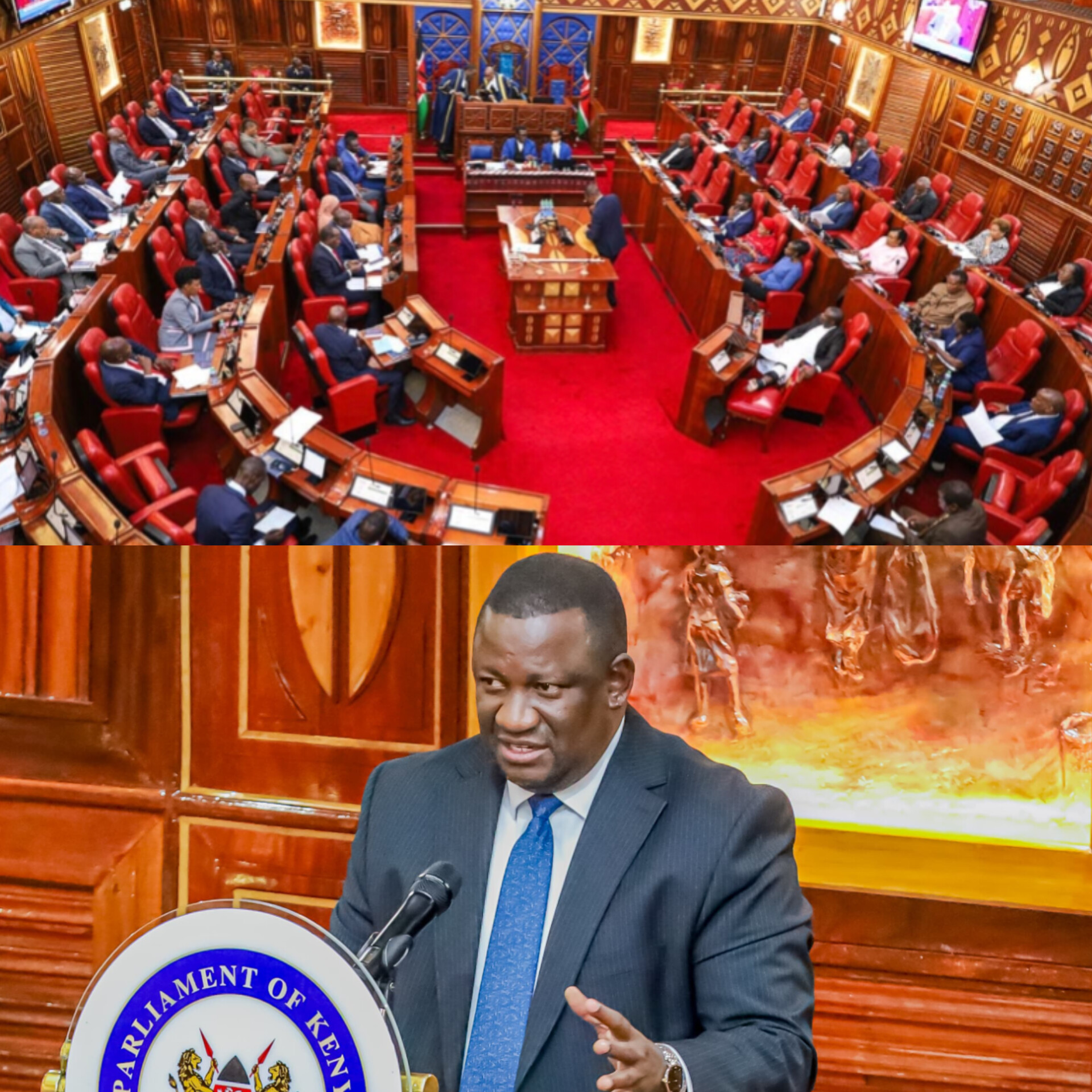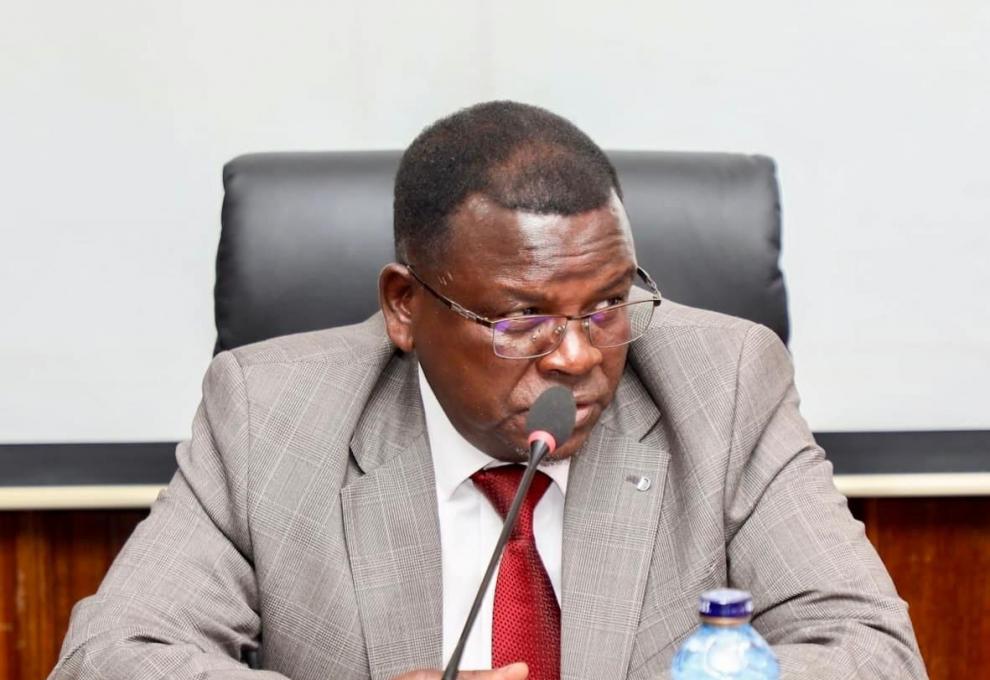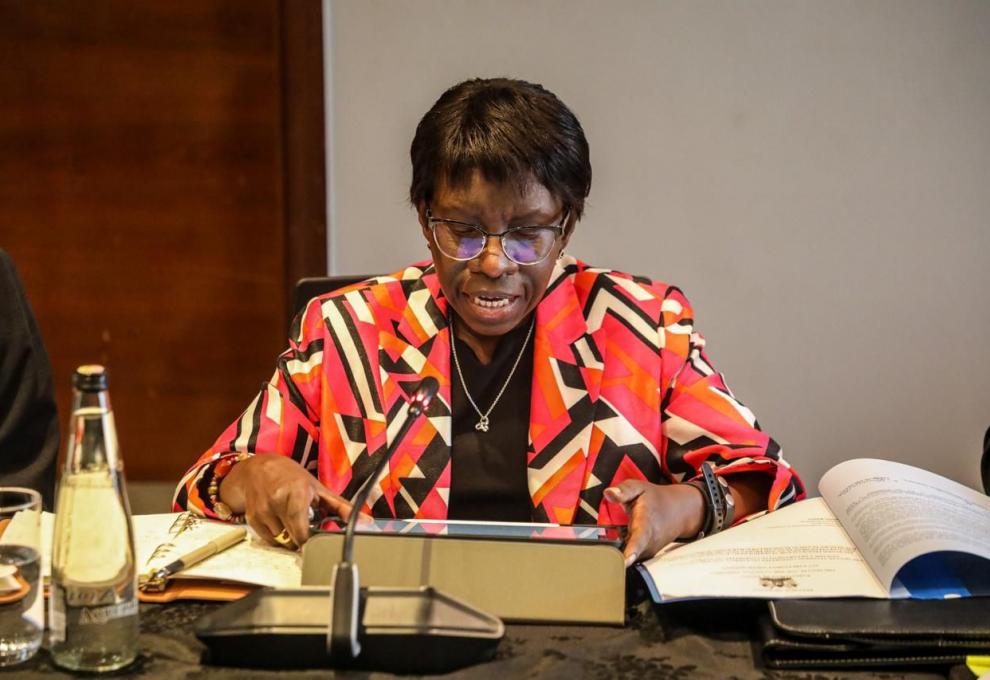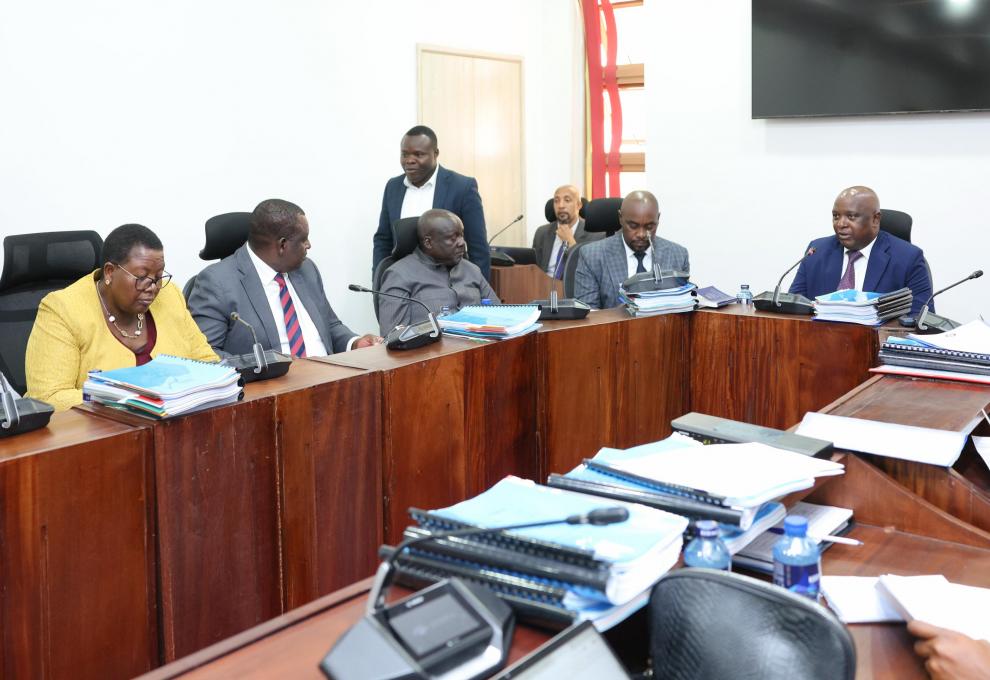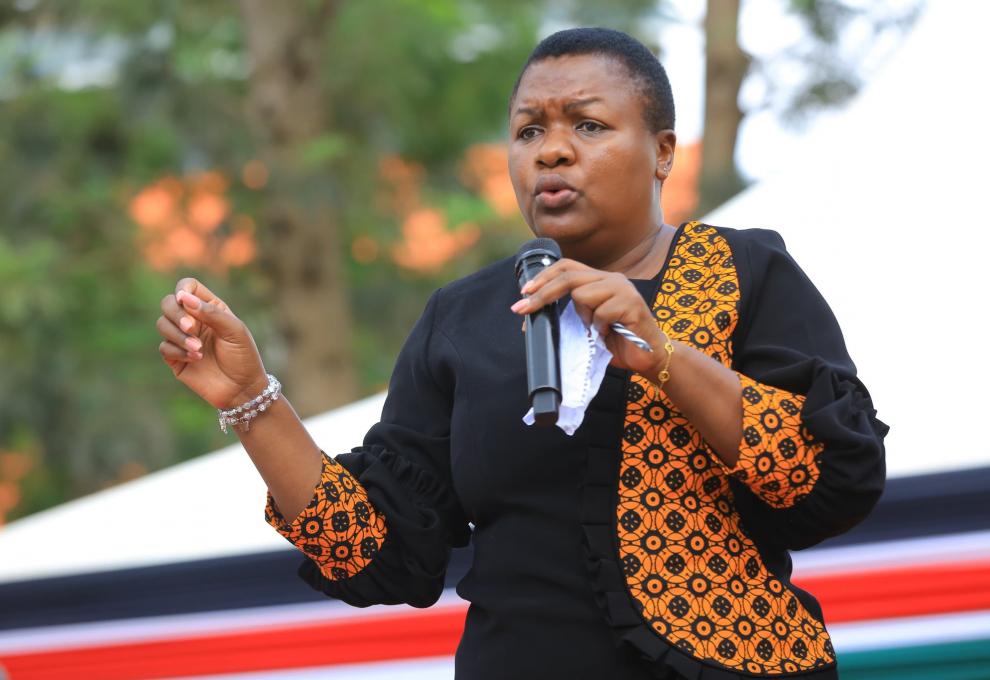𝐊𝐄𝐍𝐘𝐀 𝐑𝐄𝐀𝐃𝐘 𝐓𝐎 𝐇𝐎𝐒𝐓 𝐂𝐇𝐀𝐍 𝟐𝟎𝟐𝟒, 𝐂𝐒 𝐌𝐕𝐔𝐑𝐘𝐀 𝐓𝐄𝐋𝐋𝐒 𝐒𝐄𝐍𝐀𝐓𝐄
The Cabinet Secretary for Youth Affairs, the Creative Economy and Sports, Salim Mvurya has told the Senate that Kenya is making significant progress in preparing stadiums and training facilities ahead of hosting the African Nations Championship (CHAN) in 2025 and the Africa Cup of Nations (AFCON) in 2027.
“Final inspections for the facilities designated for CHAN 2025 were completed in June,” said CS Mvurya, adding that facilities earmarked for AFCON 2027 are under construction, with completion anticipated between December 2025 and June 2026.
Among the venues, he noted, are the Talanta Sports City, a 60,000-seater facility currently at 45 percent completion, the Moi International Sports Centre, Kasarani (99 percent complete), Nyayo National Stadium (85 percent) and Kipchoge Keino Stadium (15 percent). Kasarani Stadium, which can hold 55,000 spectators will serve as the main competition venue for CHAN 2025.
According to the CS, training facilities including Nyayo National Stadium, Ulinzi Sports Complex, Police SACCO Grounds and Utalii Sports Grounds have also been identified and are being upgraded in readiness for the continental showpieces.
Appearing before the Senate plenary, CS Mvurya was first questioned by Sen. Daniel Maanzo (Makueni) on the delays surrounding the completion of Wote Stadium in Makueni County, a project that began in 2017 but remains unfinished nearly eight years later.
“What has caused the delay in the completion of the construction of Wote Stadium in Makueni County?” Sen. Maanzo asked, also seeking clarity on the measures in place to complete the facility and whether any budgetary allocations had been made for the 2025/2026 Financial Year.
In response, CS Mvurya acknowledged the longstanding delays and cited a series of compounding challenges.
“Despite a successful launch of construction in January 2017, the stadium project has subsequently encountered delays toward its completion,” he explained.
Among the setbacks, he pointed out was a change of location by the Makueni County Government.
“The County Government changed the original site of the project, causing delays in commencement,” he said.
The new site, he added, presented significant topographical challenges.
“The western side required stabilisation using boulders and the design of the 1,500-seater pavilion had to be adjusted. A retention wall is also being erected to stabilise the running track, pitch and pavilion.”
CS Mvurya also highlighted financial constraints, citing the lack of budget allocation in the 2018/2019 and 2019/2020 financial years, which delayed payments to both contractors and consultants. He revealed that contractual issues further slowed progress.
“The contractor was asked to vacate the site in December 2021 due to slow progress but later appealed and was reinstated,” he said.
The Senate was further told that the timeline for the stadium’s completion has been revised multiple times.
“Following its groundbreaking in May 2017, the project’s completion timelines have shifted from an initial target of June 2018 to October 2020, February 2022, February 2024, January 2025 and most recently, September 2025,” the CS stated.
On funding, CS Mvurya confirmed that the Ministry has since prioritised the stadium’s completion and included it in its upcoming plans.
“Pending works include the athletics track, players’ changing rooms, a public ablution block, perimeter wall, gates, drilling of a borehole and installation of an irrigation system and pump house.”
He further indicated a collaborative approach with local authorities to accelerate progress.
“We continue to collaborate with the County Government of Makueni to ensure the stadium’s completion as a vital investment in supporting local sports talent.”
On the topographical challenges, the CS said the Ministry is currently reviewing the scope of the project to make it a functional training facility that will feature a football pitch, athletics track, changing rooms and a public ablution block.
The Ministry now projects a final completion date of December 2025.
In a separate question, Nominated Senator Joyce Korir raised concerns over growing cases of anxiety, depression and identity crises among young people in Kenya, particularly those engaged in sports and the creative arts.
“Could the Cabinet Secretary provide details of the specific government programmes and initiatives in place to promote mental health and the overall well-being of young people in Kenya?” read the question by Sen. Korir.
The question, which was read on her behalf by Sen. Abdillahi Miraj also sought to understand how the interventions had been tailored to address individual challenges facing the youth.
CS Mvurya outlined several key initiatives currently being implemented by his Ministry in collaboration with other institutions.
“We have rolled out programmes in partnership with Mathari Hospital and Youth in College (JKUAT) to offer mental health sensitisation, screening and referral services for youth who may not wish to use in-college counselling,” he said.
He added that on-the-spot mental health support is available.
“The Ministry also uses the services of the Officer in Charge of Employee Wellness to provide on-the-spot guidance on matters of mental health.”
On therapy-based initiatives, Mvurya said Sports and Arts Therapy Programmes, such as Sports for Development and Creative Therapy Workshops are designed to foster mental well-being through engagement in sports and the arts, promoting resilience, teamwork and emotional expression.
He also cited partnerships with psychologists and counsellors to offer tailored services during youth sports camps and arts events, as well as public awareness campaigns.
“Initiatives like #EndTheStigmaKE and Mental Health Awareness Weeks target young people to promote open dialogue, destigmatisation and help-seeking behaviour,” the CS said.
To tackle anxiety and depression, CS Mvurya highlighted mobile counselling outreach.
He said in partnership with NGOs, the Ministry has deployed mobile mental health units to reach young people in remote areas during sports and arts events.
He also pointed to multiple access channels for services.
“Youth can access mental health services through referrals from coaches and youth officers, direct contact with on-site counsellors during events and toll-free mental health helplines.”
On integrating mental health support into youth programmes, CS Mvurya cited national-level collaboration.
“The Ministry is a key partner in implementing the National Multisectoral Mental Health Action Plan (2021–2025), which prioritises youth mental health through joint campaigns and community outreach.”
He noted specific collaborations with Basic Needs Kenya and NACADA, saying the partnerships focus on mental health awareness during sports tournaments and training peer educators in mental health literacy.
“Mental health has now been formally integrated into athlete welfare,” he stated.
“The National Sports Safety Framework, developed with input from the Ministry of Health, includes mental health as a critical component of athlete safety and wellness,” emphasised the CS.
Senators, in supplementary remarks, urged the Cabinet Secretary to fast-track all ongoing projects and deepen existing programmes to address youth mental health more robustly.



